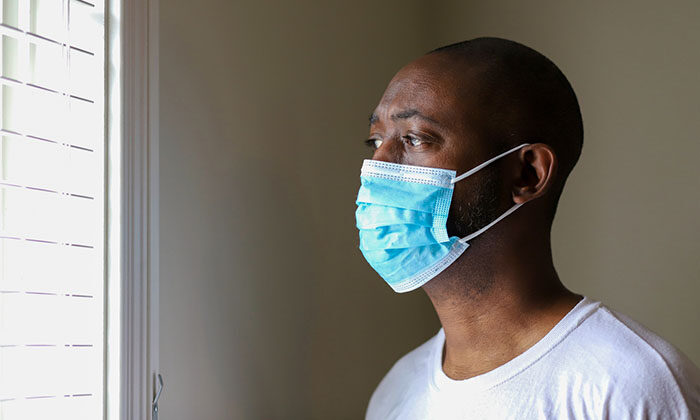
Credit: Getty Images/iStockphoto
By Our Reporter & News Agencies
As Uganda continues to report a surge in coronavirus cases, many Christians have been debating the use of face masks on a daily basis and whether enforcement agents should require them.
The total confirmed COVID-19 cases in the world is over 11 million as of 7 July, 2020, with the United States reporting the most cases — over 2.7 million.
Uganda’s cases reached 953, after results of COVID-19 tests done on 05 July 2020 confirmed 14 new cases.
In the debate over wearing masks, some have purported that consistently wearing masks can be harmful to one’s health due to breathing in one’s own exhaled carbon dioxide.
The Africa Centres for Disease Control and Prevention recommends all people 2 years of age and older wear a cloth face covering in public settings and when around people who don’t live in your household, especially when other social distancing measures are difficult to maintain.
“Cloth face coverings may help prevent people who have COVID-19 from spreading the virus to others,” the health agency says.
Health and infectious disease experts have dismissed the claim that wearing a face mask would lead to hypercapnia (when there is too much CO2 in the bloodstream).
Prof. Keith Neal, an infectious disease expert who has experience controlling SARS, MERS and swine flu, among others, told BBC, “This simply won’t happen unless there is an air-tight fit and you rebreathe your air.”
A CDC representative told Reuters that while the CO2 will slowly build up in the mask, “the level of CO2 likely to build up in the mask is mostly tolerable to people exposed to it. You might get a headache but you most likely [would] not suffer the symptoms observed at much higher levels of CO2.”
“It is unlikely that wearing a mask will cause hypercapnia,” the CDC representative said.
Carbon dioxide molecules are so small (smaller than respiratory droplets containing coronavirus) that they can easily pass through masks or out the perimeter of the masks.
A 2006 survey of healthcare workers who wear N95 face masks concluded that “healthcare providers may develop headaches following the use of the N95 face-mask. Shorter duration of face-mask wear may reduce the frequency and severity of these headaches.”
All in all, Reuters deemed it “partly false” that continually wearing a mask causes hypercapnia.
Vulnerable persons
CDC urges that people who are deaf or hard of hearing—or those who care for or interact with a person who is hearing impaired—may be unable to wear cloth face coverings if they rely on lipreading to communicate.
In this situation, they say one should consider using a clear face covering. “If a clear face covering isn’t available, consider whether you can use written communication, use closed captioning, or decrease background noise to make communication possible while wearing a cloth face covering that blocks your lips,” they say.
The Christian Post contributed to this report.

